Grand Blue Heron - Interview
by Adrian Janes
published: 27 / 11 / 2018
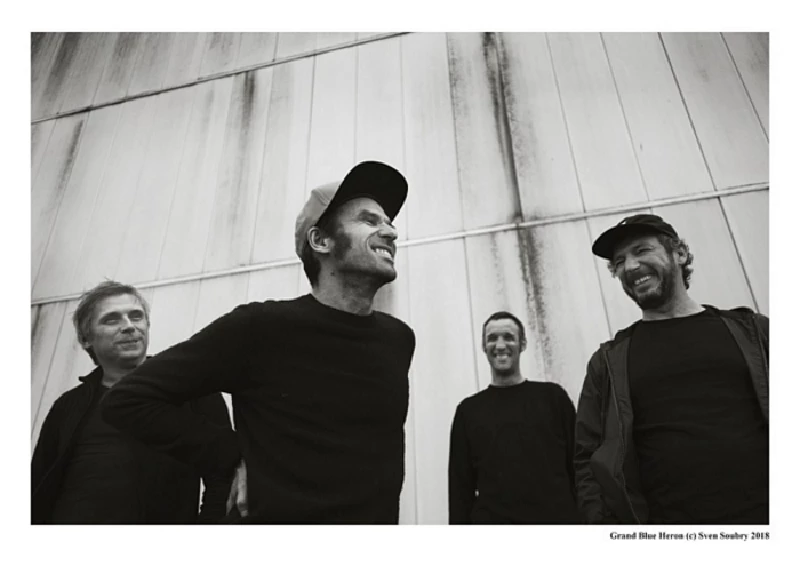
intro
Adrian Janes speaks to Paul Lamont of Belgian rock band Grand Blue Heron as they release their new album, ‘Come Again’.
Grand Blue Heron are a Belgian rock band whose first album, ‘Hatch’, was well-received by critics upon its 2015 release. But their roots go back much further, as singer and guitarist Paul Lamont and drummer Olivier Wychuyse previously played together for many years in Hitch. Their new album, ‘Come Again’, evidences the tightness and confidence that comes from years of honing a mutual musical understanding, while retaining a pleasing raw energy. It’s well worth a listen. Paul Lamont spoke to Pennyblackmusic about the band’s history and some of the influences that fed into ‘Come Again’, their relationship with the Belgian-focused label Jezus Factory, as well as the choice to sing in English for a band of their background. (Fans of Schlager Music may find this portion of the following interview offensive.) PB: Can you explain a bit about how the band came together? You and Olivier Wychuyse had previously played together in Hitch, right? PL: Yes, that’s correct. Olivier and I spent a bit more than a decade in Hitch. But about ten years ago the group disbanded amicably after about fifteen years of doing shows and releasing albums. The story, as they say, had been told. Shortly, after that Olivier invited me to join Tarn, a short-lived project that lasted for only about ten shows, but kicked harder than a mule. That was still Olivier on drums and me doing bass (together with Galatasaray bass player Lieven Eeckhout). When that stopped, I had no steady projects going at the time and I picked up an acoustic guitar my girlfriend had lying about the house. I used it to start writing some pretty classical, dark Americana stuff and recorded demos for that. Somebody heard those and invited me to come and do them live in a basement in my home town and that’s when I reached out to Olivier again and to Pedro and Arthur to do the backing. The first show came and went well and we kept on rehearsing, but now we started writing music that we all felt comfortable with (as opposed to the Americana and bluesy stuff that basically only I in the band like doing). Six months later, we had our first album and we went on to do a number of shows with that. PB: How did you come to link up with Jezus Factory? PL: Just after Tarn and before the acoustic guitar thing happened, I received a phone call from Craig Ward, who was in A Clean Kitchen is a Happy Kitchen (an Antwerp-based band specialising in skronked up impro-noise along the likes of King Crimson, only harsher) with Butsenzeller. Apparently, an old mutual friend of ours, Chantal Acda, had recommended me as a bass player to replace the guy that just left the band. A Clean Kitchen was on Jezus Factory and we stayed with the label for another two releases. That’s how I got to know label co-founders Andrew Bennett and Jerry (Lewington). And then, when both Craig and Bootsie released some of their solo recordings through them, I figured I wanted to ask if they’d be interested in having a listen to what we were doing at the time. And we’re glad they did. PB: It’s been three years since your previous album. Were there particular reasons for this gap? Were you involved in other projects during this time? PL: No, no particular reasons. Three years might seem long, but it flies by pretty fast, especially if you combine being in a band with a family life and daytime jobs. We spent a bit more than a year doing shows off ‘Hatch’, then another six months writing songs for a new album (we wrote quite a bit more than the ones that ended up on ‘Come Again’), and a further six months going from setting up microphones to coming up with a completely made record. And in summer we are rarely on the same continent at the same time, so three years is just the blink of an eye, like that. Also, there is no rush. There is no heavy music machinery stressing us into releasing something, so we have the luxury that we can set our goals on releasing good albums and then kicking out the jams to support that. PB: Would you say that the songs on ‘Come Again’ have any particular theme that links them? Or are they simply a collection that you gradually assembled? PL: The theme – even though not definable in one clear sentence – is definitely more coherent than on ‘Hatch’. Both the music, the lyrics and the artwork are in the direction of uncontrollable chaos right outside your doorstep - angst, age and the consequent rage or frustration. There is, throughout the album, a constant, grey feeling of glumness. I do not know why that is, particularly, because we are not individuals prone to depression or self-wallowing. I suppose it is perhaps a combination of a certain age and not having been born into a time marked by social media avalanches and the very narrowing populism that comes with that. Everyone gets battered round the ear with either perfect lives on social media or tidal waves of bad news you have very little control over in other media channels. Mind you, media news has never been a fairy tale, but at a certain point it starts weighing you down. So, to avoid being dragged under completely, sticking thoughts into verses that collide well with the music you make as a band is a very liberating thing to do. And you get to expunge all the glum vibes regularly on stage. It’s a great purge. A bit like loading the sins on the scapegoat and then booting it into the desert, in a slightly violent way. We wouldn’t really do that to a goat though. We don’t allow mammals into our shows. PB: On the track ‘Chlamydia’, I think I hear the lines “Bless your phones/Bless chlamydia.” Is that correct? If it is, what do they mean? PL: The line goes “Where’s your phone? Where’s Chlamydia?”. Olivier wrote the lyrics to that one, I believe, after he saw one too many tourists spending too much time on a selfie to present a perfect life. He compares the exaggerated and picture perfect selfie culture to a venereal disease. Not a bad comparison, if you ask me. PB: The guitarwork is obviously a key feature of your sound. As you have two guitarists, how do you share the responsibility? Does it relate to who first comes up with the idea for a song? PL: We take that as it comes. A lot of the times, things will start off with either me or Pedro riffing around with the drums and then the others will pile on. Arthur basically did ‘Iron Milk’ from head to tail, so all I had to do was come up with a melody line. ‘Come Again’ was more the other way round. And that’s how we take it song by song for the most part. Everybody chips in ideas and the others will follow to the finish or to the point where we think we can’t do anything interesting with what we work on. We rarely recycle, though. Once discarded, ideas usually stay discarded. PB: Reviewers have suggested various influences upon the band. Who would you yourselves cite as favourite bands and/or albums? PL: That is a really tough question. I don’t think we can name an obvious influence, but in the reviews we received in the past Joy Division and Wipers seem to pop up from time to time. Mind you, there is a list of about thirty band references that you could harvest from those reviews, none of which we actively try to emulate. When we work on a track, it will occur that we go, "‘Ooh, that’s good. Reminds me of Devo, TC Matic, Les Savvy Fav … let’s keep that in." And then as we develop the song, the original reference we thought we heard, will get distorted by the way we handle music when we play together. If, during this process, someone were to say, "Hang on, this sort of carries a Carlos Santana vibe," the song will be binned pretty much immediately after that. No ‘Samba Pa Ti’ for us. So, there are definitely whiffs of older – 70s,80s, 90s – stuff in there, but it’s too GBH-ed to put a clear finger on it. PB: Your songs are in impeccable English. Was it an easy or hard decision to write in this language? Do you feel as a Belgian band, even one that sings in English, that you’re at a disadvantage in terms of getting heard? PL: No, that was an easy choice. I myself have always felt more comfortable writing and singing in English. Rock ‘n roll was, after all, invented in English, wasn’t it? Imagine how different the musical landscape would look today if Robert Johnson had been born a Bavarian...I shudder to think about that. To us, using our mother tongue reminds us a bit too much of the bile made here called 'Schlager Music'. It's horrendous bilge. We cringe at hearing music sung in our mother tongue and there are only a very few artists who can pull it off in a good and authentic way (in my opinion, anyhow). So it has a very natural feel to do it English. Is it a disadvantage? I haven’t pondered the question, really. No, I don’t think so. Sing in English, and your songs can be digested by most of the world. Do it in Dutch and you kind of narrow that area down a bit, I would say. That said, some of the biggest bands in Belgium (not necessarily the interesting ones) use Dutch, whereas a great number using English really deserve to be heard by a lot more people. It’s more to do with music on the one hand and the music industry machinery on the other, I presume. Not necessarily about the language you use. PB: What kind of touring plans do you have? Will you be coming to the UK? PL: We have a number of Belgian release shows coming up and we are looking for gigs in early 2019 as well as into some cool festivals for summer. And I do indeed hope that we will make it to the UK on this album. It’s not the easiest country to play music in, but we’d love to come over there and do some gigs. We are to some extent pretty DIY in the sense that we book our shows and that takes time, effort and patience. On the whole, at this point, the future is looking rather bright, so yes I do hope we’ll be able to meet up in the UK or Benelux in the foreseeable future. PB: Thank you.
Band Links:-
https://www.facebook.com/grandblueheron/https://twitter.com/grandblueheron
https://vi.be/grandblueheron
Picture Gallery:-
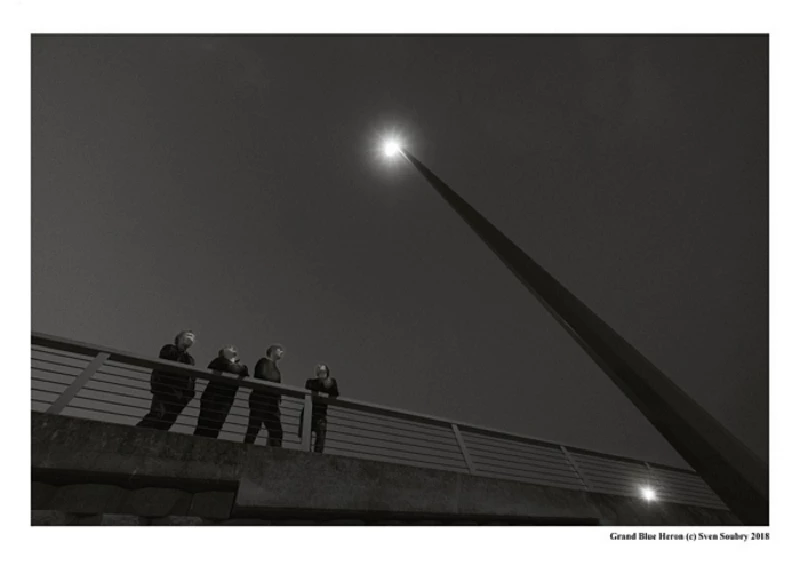
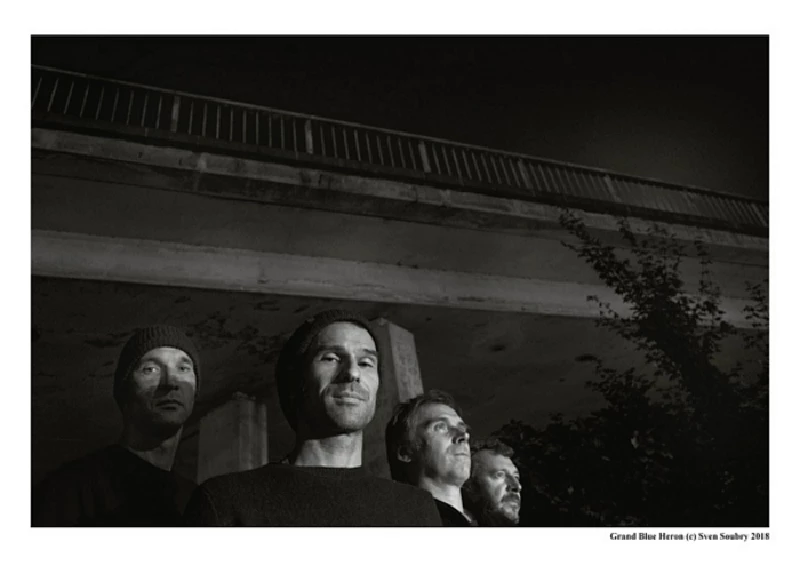
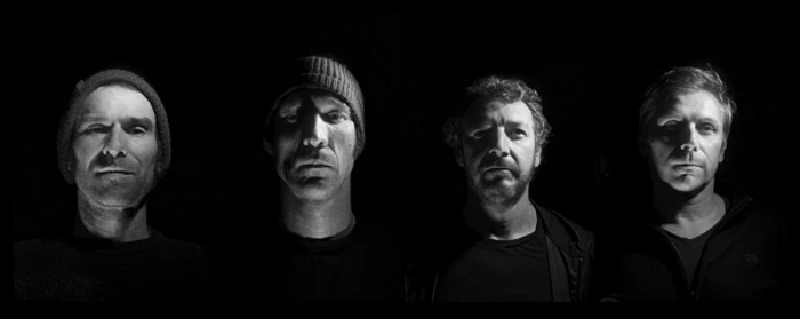
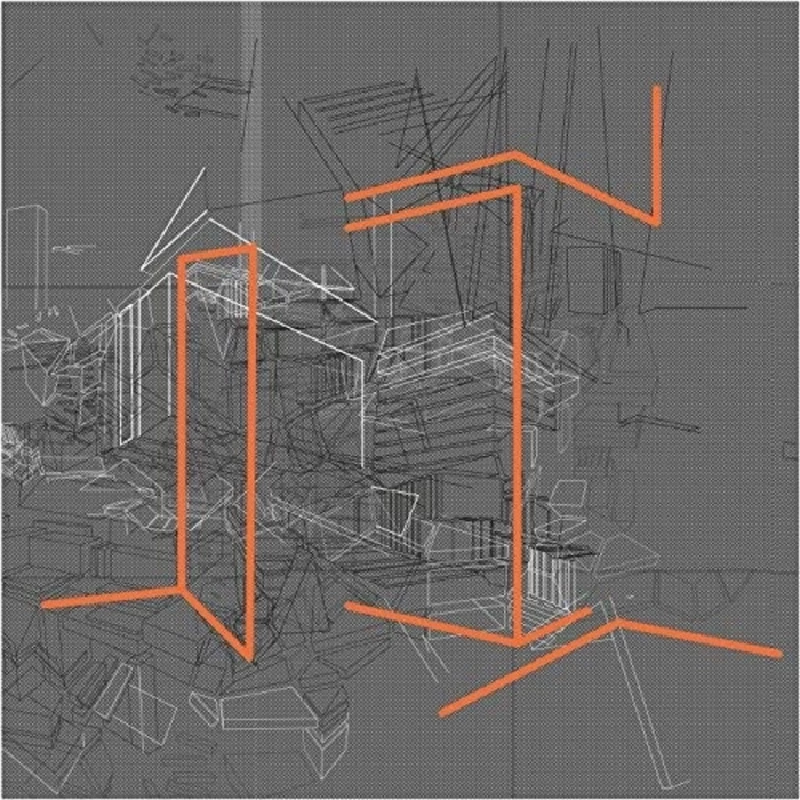
reviews |
|
Come Again (2018) |
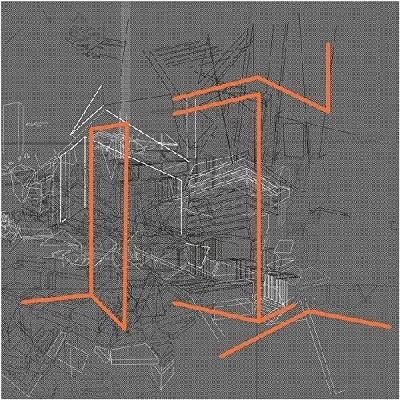
|
| Powerful and fiercely performed second album from energetic Belgian rockers Grand Blue Heron |
most viewed articles
current edition
Peter Doherty - Blackheath Halls, Blackheath and Palace Halls, Watford, 18/3/2025 and 21/3/2025Armory Show - Interview with Richard Jobson
Liz Mitchell - Interview
Lauren Mayberry - Photoscapes
Deb Googe and Cara Tivey - Interview
Max Bianco and the BlueHearts - Troubadour, London, 29/3/2025
Garfunkel and Garfunkel Jr. - Interview
Sukie Smith - Interview
Maarten Schiethart - Vinyl Stories
Clive Langer - Interview
previous editions
Heavenly - P.U.N.K. Girl EPBoomtown Rats - Ten Songs That Made Me Love....
Trudie Myerscough-Harris - Interview
Doris Brendel - Interview
Oasis - Oasis, Earl's Court, London, 1995
Beautiful South - Ten Songs That Made Me Love...
Dwina Gibb - Interview
Pulp - Ten Songs That Made Me Love...
Kay Russell - Interview with Kay Russell
Sound - Interview with Bi Marshall Part 1
most viewed reviews
current edition
Davey Woodward - Mumbo in the JumboNigel Stonier - Wolf Notes
Wings - Venus and Mars
Kate Daisy Grant and Nick Pynn - Songs For The Trees
Only Child - Holy Ghosts
Neil Campbell - The Turnaround
Philip Jeays - Victoria
Darkness - Dreams On Toast
Suzanne Vega - Flying With Angels
Charles Ellsworth - Cosmic Cannon Fodder
Pennyblackmusic Regular Contributors
Adrian Janes
Amanda J. Window
Andrew Twambley
Anthony Dhanendran
Benjamin Howarth
Cila Warncke
Daniel Cressey
Darren Aston
Dastardly
Dave Goodwin
Denzil Watson
Dominic B. Simpson
Eoghan Lyng
Fiona Hutchings
Harry Sherriff
Helen Tipping
Jamie Rowland
John Clarkson
Julie Cruickshank
Kimberly Bright
Lisa Torem
Maarten Schiethart